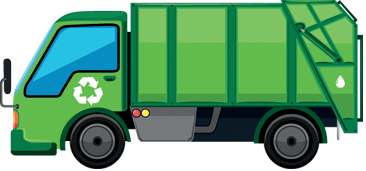Traditionally the European Union is a region where waste management, circular economy models etc. are highly important policies and governments and private entities had been known to invest heavily in establishing and developing effective waste management programs through recycling, reuse or other. European Union has also set itself some of the most ambitious recycling targets, in the face of the Europe 2020 initiative for example.
The message from the EU’s waste management industry
 The signals coming from the European Union’s waste management sector of the industry is loud and clear – it won’t work unless something is done. Here are some of the key issues voiced out by industry specialists and analysts engaged in the matter:
The signals coming from the European Union’s waste management sector of the industry is loud and clear – it won’t work unless something is done. Here are some of the key issues voiced out by industry specialists and analysts engaged in the matter:
- Higher future targets for resource recovery are simply unrealistic and will not achieved unless backed by fiscal measures;
- There is no point trying to push for fiscal measures in order to achieve set targets (for the EU as a whole) as fiscal measures are either adopted or not, by individual member states, on a national level;
- A EU wide carbon dioxide tax must be adopted by all member states if many of the set goals are actually to be achieved (EC is planning to raise the recycling and reuse rate for the entire union from 50% to 70% – some say the figure is simply impossible to attain as things are now).
Some other issues that need addressing on EU level
- Phasing out landfills – a common policy and practice imposed on all member states by the EU government in order to increase recycling efforts. This however leaves a gap in preventing illegal rubbish dumping.
- Banning landfills as means of waste disposal without a (financially) viable alternative will cause chaos as waste will always go to the cheapest disposal site.
- Transfer of waste from one country to another in EU should be encouraged as this will allow for waste to be processed in the cheapest most effective way (as opposed to simply ending up in a local landfill).
Addressing the organic and food waste recycling issue
It is unbelievable how much food is wasted in the EU every year. Food waste is not usually seen as a problem, and is rarely addressed in discussions and policy making. Recycling of organic waste is also a problem, especially for the United Kingdom. Dealing with these particular waste management problems can be done effectively on a national level. This will not only physically reduce the amount of organic and food waste, but actually develop the national recycling and waste management industry – which creates jobs and GDP, both much needed in many EU member states.
A well-developed recycling and waste management industry will be a step toward the much needed and anticipated complete circular economy – a vision which is starting to be lost on many people. Cultural and regional bad habits of various EU member states should also be dealt with. Excess consumption of plastics in France and Italy for instance is something which can be regulated. There are many other areas due for improvement if the EU’s waste management industry is to reach set goals.

